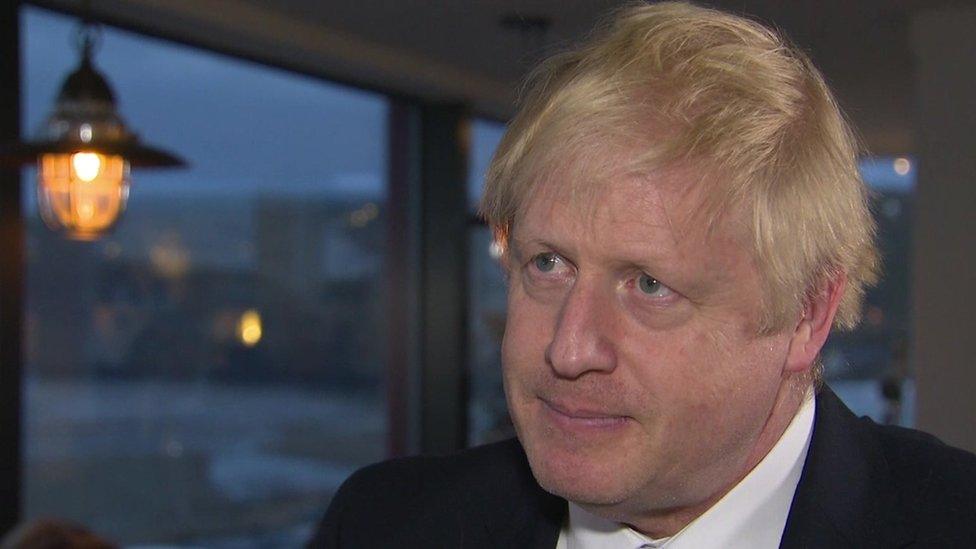General election 2019: Has Boris Johnson got National Insurance cut confused?
- Published

The claim: Boris Johnson unexpectedly unveiled the Conservatives' plan to raise the threshold at which people start paying National Insurance contributions. He said: "If we're lucky enough to be elected, so the first Budget we will go up to the ВЈ9,500 threshold and that will, as I say, put ВЈ500 into the pockets of everybody."
Reality Check verdict: That's not the correct figure. The Conservatives' own press release says the benefit from raising the threshold to ВЈ9,500 in 2020-21 would be ВЈ100 per year. The Institute for Fiscal Studies (IFS) says it would be ВЈ85 per year.
National Insurance contributions (NICs) are a tax of 12% taken off UK workers' salaries above a certain level, currently ВЈ8,632. Self-employed people pay them too.
On a visit to North Yorkshire, the prime minister revealed that the Conservatives plan to raise that limit to ВЈ9,500 next year (2020-21).
He told the ҙуПуҙ«ГҪ that this would put ВЈ500 "into the pockets of everybody".
But the Conservatives' press release says the move "will cut taxes for 31 million workers by approximately ВЈ100 a year".
The IFS has a slightly different figure - it calculates that everyone earning more than ВЈ9,500 would benefit by ВЈ85 in 2020-21. Their figure is different largely because the threshold would have risen slightly by then anyway to allow for inflation.
It's also worth pointing out that not "everybody" would be affected. People earning under ВЈ8,632 and those above the state pension age would not benefit as they do not pay National Insurance.
Mr Johnson has "an ambition" to raise the threshold further to ВЈ12,500 and says there would be a timescale announced at the next budget, should the Conservatives get re-elected.
The Conservatives' press release says: "Over time we will raise the threshold to ВЈ12,500, saving workers approximately ВЈ500 a year".
In a separate interview with ITV News, Mr Johnson talked about the benefit from raising the threshold to ВЈ9,500 saying: "It's about ВЈ500 a year." The reporter challenged him saying: "That's not what you are guaranteeing. You are guaranteeing about ВЈ100 next year and there's an ambition for ВЈ500."
But Mr Johnson was adamant: "You are not right there. We are going to ВЈ9,500 threshold initially and then the ambition is to get to the ВЈ12,500 threshold. But the initial cut that we are making does offer a ВЈ500 cut for every working person."
- Published20 November 2019
- Published18 November 2019